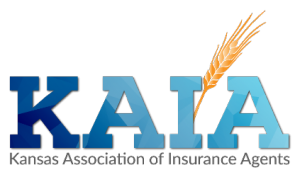2024 Special Session Ends
The Kansas legislature completed a brief Special Session recently after Governor Kelly called them back to pass a tax reform bill that she would sign. After issuing a handful of vetoes on previously passed tax plans, news broke last week that legislative leaders and the administration brokered a deal on tax relief. Over the course of two days, a joint House and Senate tax committee held an informational hearing on the proposal and the legislature quickly debated and passed the bill. With the state sitting on $3.5 billion in reserves, the bill awaiting Kelly’s signature, provides an initial $470 million tax cut with about $380 million annually in cuts starting in FY2026. The major elements of the bill include: 1) Moving from 3 rates to 2 tax tiers (5.2% and 5.58%); 2) Slight increases in the standard deduction amounts; 3) Increase in the personal exemptions; 4) Full elimination of income taxes on Social Security income; 5) An increase in the residential property tax exemption; and 6) A 50% child care tax credit.
While the Governor called the Special Session solely for the purpose of passing a tax relief bill, the legislature did use the opportunity to update state STAR Bond statutes. The proposal, which passed with supermajorities, allows for the Department of Commerce to offer a new class of STAR Bonds for professional sports stadiums that could lure the Kansas City Chiefs and/or Royals to the Sunflower State.
The legislature adjourned until Monday, January 13 for the 2025 Regular Session. However, legislative leaders will soon assign special committees to study various topics throughout the interim session. These interim committees typically approve non-binding recommendations for the full legislature to consider when they return for the 2025 regular session. More to follow on interim committees as information becomes available.
Looking Ahead to Elections
All 165 legislative seats are up for election this year. Republican leaders hope they can retain or grow their supermajorities in the House and Senate. Of course, Democrats will be working hard to erode the veto-proof majorities. After the early June filing deadline, a picture of the slate of candidates took shape. Here is a snapshot of the field as we head into the Primary Election on August 6:
- 18 House and 11 Senate incumbents did not seek reelection.
- 9 State Representatives filed to seek promotion to the Senate, while 1 Senator filed for a House seat.
- 43 House (27 R’s/16 D’s) and 5 Senate (3 Rs/2 Ds) candidates have neither a Primary nor General Election opponent.
- Democrats fielded candidates in 92 or 125 House races and 34 of 40 Senate seats.
- 9 House races and 4 Senate races are Primary contests only.
